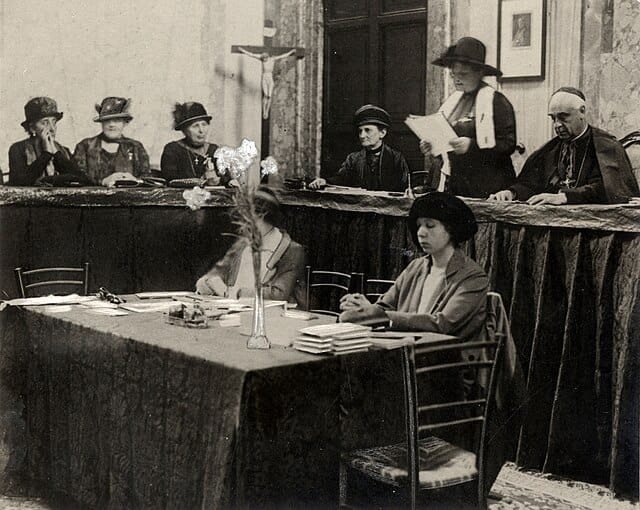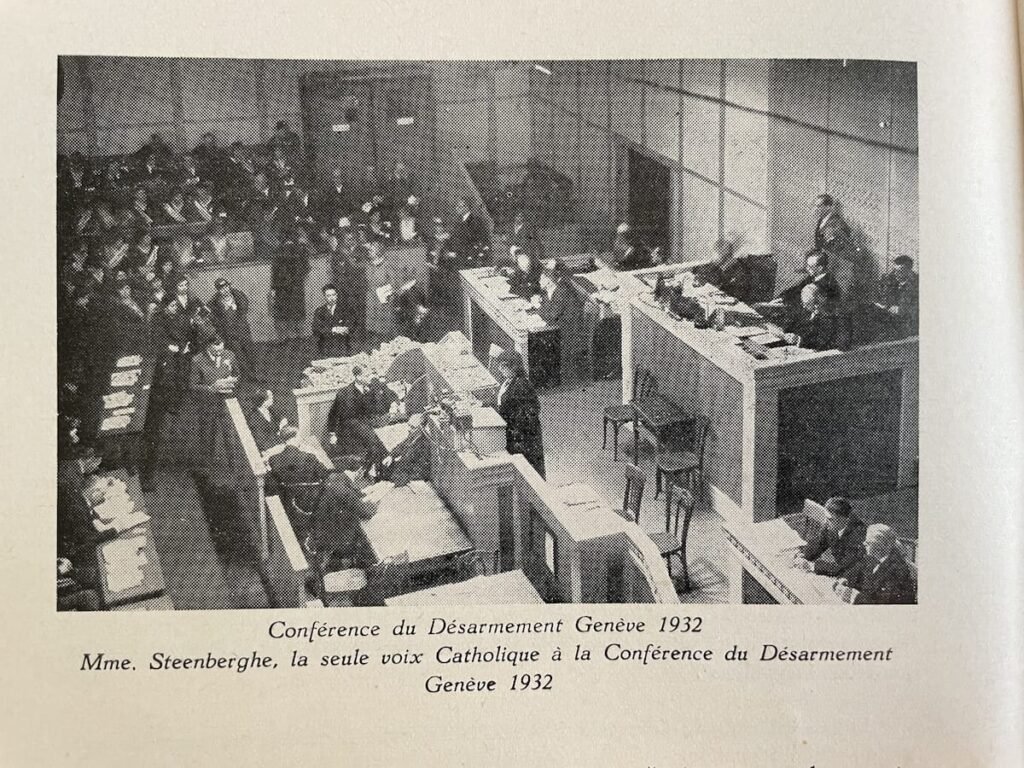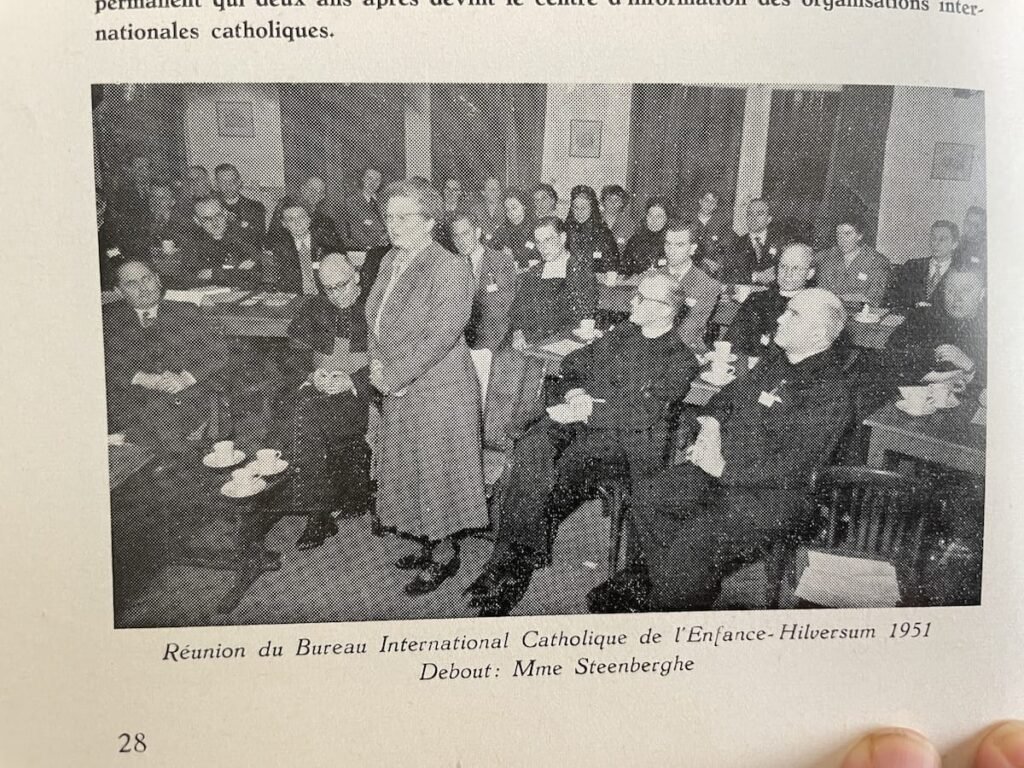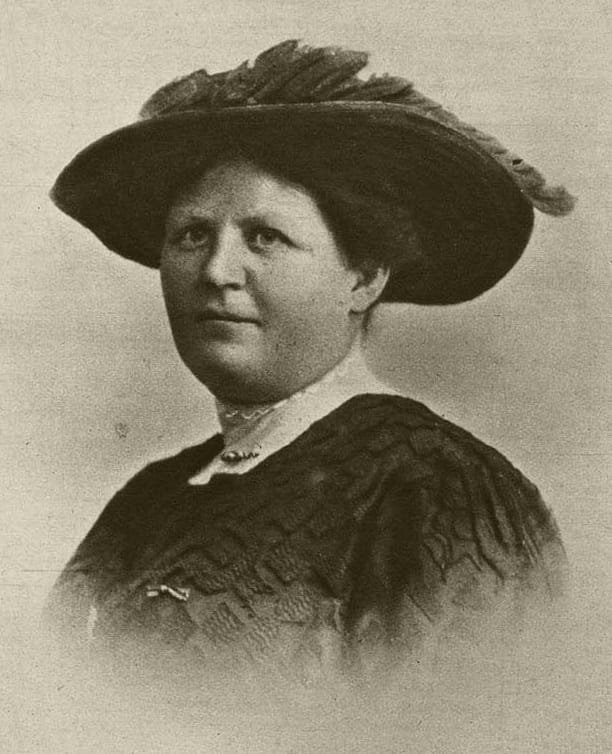#WomensWednesday – nº 4: 15th of September 2025 – Catholic, Committed, Internationalist: The Legacy of Florentine Steenberghe-Engeringh (1875–1952) in the Netherlands and Beyond
Born in Utrecht on April 10, 1875, Petronille Aimée Florentine Engeringh, better known as Florentine Steenberghe-Engeringh, was a pioneering figure in Dutch Catholic social and women’s organizations. Raised in an upper-bourgeois family, she received her education from the Sacred Heart nuns in Belgium. Although societal norms prevented her from attending university, she benefited from a rich and well-rounded intellectual formation outside formal academia.
From 1919 to 1936, Steenberghe-Engeringh served as president of the Roman Catholic Women’s League in the Netherlands. The League aimed to unite Catholic women across class and professional lines, a complex mission at a time when many bishops, and women themselves, preferred class-based organizations. Mixed-class collaboration met understandable resistance from working-class women wary of elite-dominated local boards.
Her commitment to social welfare extended far beyond the League. She held leadership roles in several organizations, including the Board of Guardians for Utrecht (1911–1921), the Association for the Improvement of Poor Relief (1910–1924), and the Dutch Association for Poor Relief and Charity (1920–1924). She also served on the boards of the Roman Catholic League for Peace and the Health Council, and helped establish the Catholic radio broadcasting service. Politically active, she ran for office multiple times with the Roman Catholic Socialist Party.
In 1922, following Pope Pius XI’s recommendation, she became president of the International Union of Catholic Women’s Leagues (IUCWL, later known as the World Union of Catholic Women’s Organizations, WUCWO). Under her leadership, the Union expanded globally. She also helped found the Conference of Presidents of International Catholic Organizations (CICO) in 1927. She remained president of the IUCWL until her death in 1952, the same year WUCWO held its first presidential elections.
Other Notable Dutch Lay Women
Mia Schmitz graduated from the Roman Catholic School of Social Work in Sittard in 1933. For her final project, she interned with the Belgian Catholic Women’s Organization (KAV) in Brussels, which inspired her to advocate for class-based organizing among working-class women. She was soon appointed diocesan leader for Roermond by the Roman Catholic Workers’ Association.
Maria Reijntjes became diocesan leader for ’s-Hertogenbosch (Bois-le-Duc). Like Schmitz, she trained in Brussels and later recruited and mentored other women for leadership roles.
Maria (Miet) van Puijenbroek took on the role of diocesan leader of the KAV in ’s-Hertogenbosch in 1955. Unlike her predecessors, she did not come from a bourgeois background, marking a shift in the social composition of Catholic women’s leadership.
Maria (Rie) H.C.Vendrik – co-founder of the Catholic Young Women’s Movement in the Netherlands, and President of the youth section of the WUCWO (World Federation of Catholic Young Women and Girls) See upcoming post on her. She will be featured in an upcoming post in the Digital Archive of Lay Women.
Relevant archives: KAV/VNKV Archives in Nijmegen, Catholic Documentation Centre (KDC): https://www.ru.nl/kdc/
More on women and syndical organisations in The Netherlands:
https://vakbondshistorie.nl/dossiers/vrouwen-in-de-katholieke-vakbeweging/




